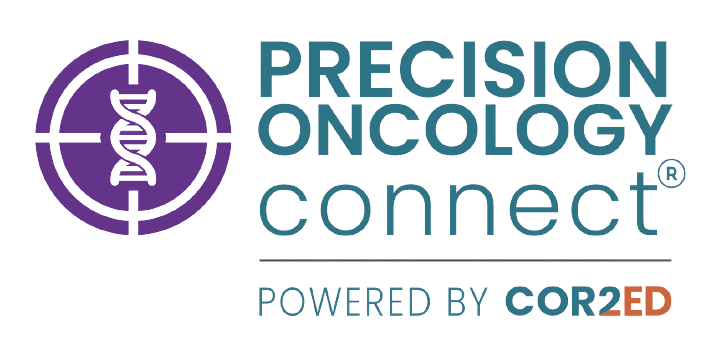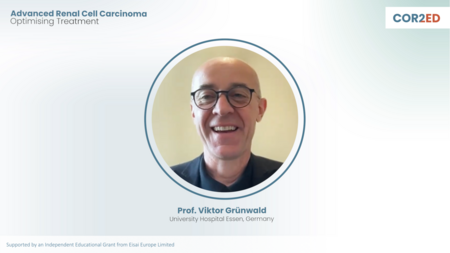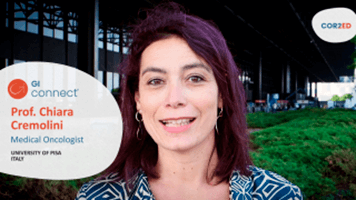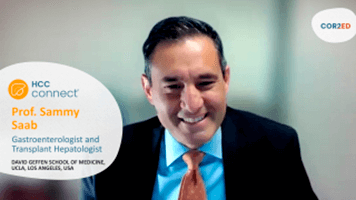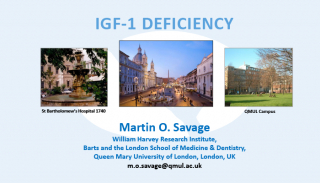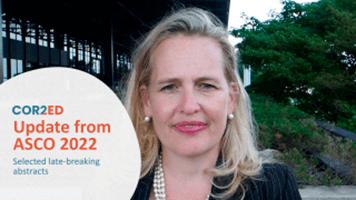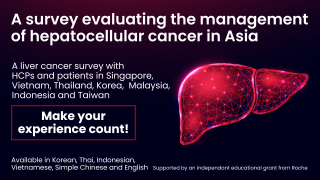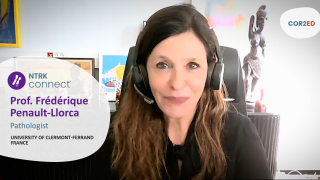
TRK fusion-positive cancer highlights from ASCO 2022
TRK fusion-positive cancer highlights from ASCO 2022
Prof. David Hong provides a summary of the key TRK fusion-positive cancer data presented at ASCO 2022. He selects two abstracts further supporting the profound efficacy and established safety profiles of the first-generation TRK inhibitors (larotrectinib and entrectinib), and a third abstract featuring data for a second-generation TRK inhibitor in a Phase 1 trial with patients resistant to first-generation TRK inhibitors.
Prof. David Hong provides a summary of the key TRK fusion-positive cancer data presented at ASCO 2022. He selects two abstracts further supporting the profound efficacy and established safety profiles of the first-generation TRK inhibitors (larotrectinib and entrectinib), and a third abstract featuring data for a second-generation TRK inhibitor in a Phase 1 trial with patients resistant to first-generation TRK inhibitors.
Prof. David Hong

Prof. David Hong
Medical Oncologist
MD Anderson Cancer Center, Houston
United States (US)
Prof. David Hong has received financial support/sponsorship for research support, consultation, or speaker fees from the following companies:
|
5 min
|
Jun 2022
This programme was made for you: your opinion matters
Share your feedback in just 4 clicks and help us to continue to create the content you need.
I agree that this educational programme:
Was valuable to me:
1/4
Has improved my knowledge of this topic:
2/4
Is likely to change my clinical practice:
3/4
Was balanced and unbiased:
4/4
download resources
This programme was made for you: your opinion matters
Share your feedback in just 4 clicks and help us to continue to create the content you need.
I agree that this educational programme:
Was valuable to me:
1/4
Has improved my knowledge of this topic:
2/4
Is likely to change my clinical practice:
3/4
Was balanced and unbiased:
4/4
NTRK CONNECT Highlights from ASCO 2022
My name is David S. Hong. I am a Professor and Deputy Chair in the Department of Investigational Cancer Therapeutics and Associate Vice President of Clinical Research here at M.D. Anderson Cancer Center in Houston, Texas.
On behalf of NTRK CONNECT, I'm going to present my thoughts on three key abstracts in the previous ASCO 2022 concerning NTRK. The first abstract is by Dr. Alexander Drilon, and that is the long-term efficacy and safety of larotrectinib in a pooled analysis of patients with NTRK fusion cancers. The second abstract is an updated analysis of efficacy and safety of entrectinib in patients with locally advanced, metastatic NTRK fusion positive, solid tumours, and that was by Dr. Maciej Jerzy Krzakowski. And lastly, the third abstract is the safety and pharmacokinetics in clinical efficacy of ICP-723; a highly selective next generation pan-TRK inhibitor in patients with solid tumour from Dr Xiao-Li Wei.
The reason I chose these three abstracts really kind of highlights the activity of these molecules, particularly both larotrectinib and entrectinib. And both with larotrectinib and entrectinib we see that after even several years that the efficacy remains still really profound in patients with NTRK fusion cancers, both with larotrectinib and entrectinib. I would argue though that larotrectinib there seems to be a higher efficacy rate in overall longer follow-up, but both molecules show high activity in patients with NTRK fusion.
This is really highlighted by another abstract that was featured in ASCO 2022 by Dr Bokemeyer that looked at patients who received larotrectinib in kind of a silicon or a computational analysis, with real-world data from a Flatiron database showing that indeed patients with larotrectinib in a match-to-match comparison with similiar patients showed significant overall survival, and a lower risk of death over a similar period of time.
My last poster I want to feature is this abstract by Dr Xiao-Li Wei, looking at really the second-generation of TRK inhibitors. There are now several TRK inhibitors, —second-generation TRK inhibitors in the clinic, in clinical trials, repotrectinib, Pyramid Biosciences also has a TRK inhibitor ongoing. And this TRK inhibitor targets one of the most common mutations that we do see in patients with larotrectinib and entrectinib resistance, the solvent-front mutations. And what Dr Wei showed in these patients with NTRK that indeed there were responses, close to 67% responses in these patients with NTRK fusion.
Thank you again for taking your time to listen to my review. You can download these slides from the website, and again thanks again for listening.
PRECISION ONCOLOGY CONNECT is an initiative of COR2ED, supported by an Independent Educational Grant from Bayer.





